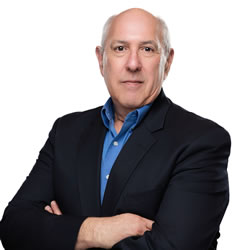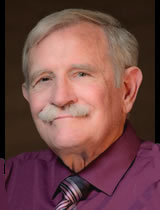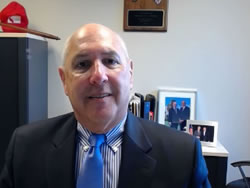It wasn’t that long ago that my corporate counsel forwarded me an article from the Journal of American Law, “The Broker as Advisor: When Courts Impose a Duty to Recommend Coverage.” This article was authored by Seymour Everett, Esq., and David Martin, Esq. It was an excellent article, and well researched as to the duties and obligations of insurance brokers. The article was consistent as to the general duties that have been decided throughout most of the United States. The article stated that the a duty of an insurance broker is generally limited. The general standard requires the agent broker to use reasonable care and diligence to procure the coverage requested by client. Most courts have examined the scope of a broker obligations and have concluded that the duty does not include recommending specific types or limits of coverage. The balance of the article analyzed the relationship of the broker and its client to discuss the circumstances under which a duty to advise could or would be imposed.
These duties are fairly universal throughout the United States, beginning with the California case of Jones v Grewe, 189 Cal.App. 3d 950, 959 (1987) (a duty assumed by an insurance agents includes “the obligation to use reasonable care, diligence, and judgment in procuring the insurance requested by the insured.”). Therein lies the problem, and hence the title of this article. Once Jones v Grewe was decided, it caught on like wildfire throughout the West and eventually into the East Coast. The standard was universal, that absent certain activities triggering what has since been called a “Special Relationship”, there was no duty to advise. In fact, many articles and appellate decisions have since concluded that an insurance agent or broker is simply an “order taker.” This duty can be elevated by holding oneself out as an expert, asking to do a risk management review which the insurance broker agrees to do after being asked, or, misrepresenting coverage, or charging special fees for additional services. See Fitzpatrick v. Hayes, Civil Appeal No. A073106 (Ca. Ct.App. Sept. 16, 1997) (insurance agent incurs liability to a client for an uninsured loss only if he: (1) misrepresented the coverage being offered, (2) failed to procure a specific coverage the applicant requested, or (3) assumed an additional duty by holding himself out as having a specific expertise.). In the East Coast, an additional element has also been introduced into the equation in some states. The new element examines the length of the relationship with the agent or broker who may have an intimate knowledge as to the operations or needs of the client simply based on the length of the relationship. See Is Your Insurance Agent or Broker Liable When a Loss or Claim Isn’t Covered? General Business Trial Group May 14, 2019.
All the foregoing is, of course, an accurate recital of how legal precedent is evolving and moving, much like a river’s current. The problem is, once Jones v Grewe was decided, it took on a life of its own. We now have a situation that bears little relationship to the reality of the day-to-day operations of the insurance industry. Therein lies the quandary, we have one river with two different evolutions or “currents” as to how the relationship and day-to-day operations actually work.
As stated above, once I read the article, I contacted my corporate counsel. I not only thanked him for the article, but I told him I totally agreed with the article’s discussion of the law. What I added, however,
was the other “current.” I brought up the reality of my day-to-day operations.
At the time, I owned a Wholesale Insurance Brokerage that specialized in the placement of Specialty Lines Insurance, as dangerous a form of coverage that can exist. We advertised that we specialized in professional liability, which was the basis of my counsel’s concern, i.e., by holding ourselves out as experts, we would be held to a higher standard of care in providing that expertise. What would happen if we failed to do so on one placement? Would we be looking at a potential lawsuit?
My response was to him was “I’ll be happy to have that one lawsuit where we failed to deliver expertise as opposed to the 500 other lawsuits we did not have where we did.” My attorney was quite perplexed and responded with “what you mean by that?” It was quite simple; we delivered our expertise. We made recommendations to our retail brokers as what may be needed by the insured after reviewing the application, or even asked deeper questions in order to determine what else might be needed. In other words, we were interested in providing the insured’s financial protection, as opposed to simply selling them some insurance. After all, we were experts in professional liability and specialty lines. We would provide guidance and counsel with respect to “gotchya’s” that existed in the policies whether it be in the definition of “claim”, insuring agreement issues, the usage of absolute exclusions, or onerous conditions or the lack of liberal “Conditions.” We would give advice and counsel to our insurance customers. The result was that after 20 years, I can represent that not one insurance broker we did business with ever got sued for professional liability for anything my firm did or failed to do. Why? Because we delivered our expertise.
As I pointed out to my attorney, if we were to conduct yourselves consistent with what the cases and the article advised, we would simply be a conduit, or an order taker. We would ask the retail broker and/or insured what they wanted us to do and then do it. Yet, “the goal of insurance is to restore the insured’s financial situation, their balance sheet usually, to the exact amount less a deductible just prior to the loss. People need this protection when they suffer a large loss. When that protection is not provided, what happens?” Wouldn’t we still be sued anyways?
What is better, successfully defending a lawsuit or not having one at all?
Another point was also raised with my attorney. How many times could we successfully defend a lawsuit based on the principles in the case law throughout the United States before our insurance company finally says to us “we’re happy that you are winning every lawsuit, but we need to raise your deductible to $250,000 per claim so that you are no longer in our pocket for defense costs ” Wouldn’t that be the reality?
What are some of the additional problems raised however by following the concept of being only an order taker? You have a customer that comes in your office who says I have a business and I need insurance. What do you recommend? How does in the insurance agent or broker therein not give advice by answering the question. Are they supposed to say
“what is it you’re worried about? We have numerous commercial policies we could provide, then we could confirm we will provide it depending on what your needs are and as you know, you must have worker’s comp. Perhaps you might consider insuring your property or consider insuring your business for liability. What are your concerns and what are your needs?”
I can’t imagine any consumer of any kind would want to do business with a broker that would fail to advise them as to what might be needed. But let’s take it a step further. I don’t know any insurance broker that would advertise that they have no duty to advise, guide or direct clients as to the appropriate types of insurance coverages for its business operations. But there is another reality that is ignored. That is, your average insurance agent or broker with five years of experience in any line, whether it be personal lines, like homeowners and auto, or commercial lines knows more about the ins and outs and extensions to coverage of the insurance policy and what may be needed by an insured than any insured regardless of sophistication.
This is equally true regarding how specialized the industry has become. There used to be a time when a business only needed property, liability, perhaps a commercial umbrella, worker’s compensation, and employee benefit coverages in the form of group medical and/or group life. That was about it. Now, however, it is gotten far more complex. Hazards have become more complex based on exclusions in the CGL policy for environmental liability, for employment practice exposures, discrimination etc. These exclusions gave birth to whole new industries to satisfy those needs.
Thus, businesses not only need the aforementioned five coverages, but they need director and officer liability coverage, employment practices liability, fiduciary liability, cyber liability, tech liability, crime coverage, and professional liability if they are providing professional services. In fact, I’ve seen “Discussion Lists” on quotes to clients suggesting as many as 53 other P&C Coverage types for a commercial client to consider. Many of these policies are complex, and fraught with peril especially when coordinating current coverages with claims made coverages with all the classes therein contained.
I imagine only the most sophisticated corporate clients have a sophisticated risk management department that can understand these coverages. Many businesses which do have a risk management department and knowledgeable professionals therein, still may not understand the ins and outs of specialty line policies. Such is the conflict of day-to-day operations versus the current of law.
Another trend is currently appearing in many decisions as well. Simply put, it’s a duty of an insured to read the policy. So, what if he does? It’s bit absurd to expect the consumer, regardless of sophistication level, to be able to read a 96- page commercial general liability (CGL) policy and understand it all. Insurance Services Office (ISO) has over 1,800 active commercial property policy forms and endorsements countrywide, with any state having up to 200 in effect. Each form has a multitude of coverage options. With respect to ISO’s business owner’s policy (BOP), there are over 2,300 BOP policy forms and endorsements countrywide with up to 220 being in effect in any one state. This does not include the literally thousands of non-ISO proprietary or enhancement forms. It would take a licensed insurance agent or broker to explain the options might be available such as all the supplemental coverages that can exist in the standard CGL but are not necessarily offered on every account. There are probably 15 or 20 sublimit op- tions and extensions for valuable papers, cleanup costs, the ability to buy up code requirements on a fire policy etc. Only the most knowledgeable insurance agent dealing with this on a day-to-day basis with even know they exist.
Further complicating the duty to read the policy, if such a “duty to read” exists, is whether or not anybody would even understand what they have read. As an expert witness, I am not allowed to review a policy and offer opinions as to the underwriting intent. Only a court can determine the intent of the written document, yet the consumer is expected to read the policy to determine that themselves? I find that difficult to fathom. More importantly, however, how is any consumer, even a lawyer, supposed to know than in one state, a provision in the Travelers’ Cyber Liability policy will not be enforced as to social media fraud, and yet in another state, the courts agree that it is covered. So how can one read the policy and then be able to interpret in such a way to as to know whether it is or is not enforceable in each locale? That too is the absurdity of the argument. Given the above, and the two currents moving in different directions, it is no surprise Chris Burand recently wrote
“If an insured needs to read and understand the policy themselves, then they do not need a professional agent. The professional agent’s role is to explain and guide an insured to the coverages they need. If an agent does not fulfill that role, the result is that no one needs an agent. One E&O certainty is this: an agent without clients is unlikely to incur an E&O claim. At least these agents will be safe from being sued.”
There’s also the concept of best practices. This is not the standard of care. In fact, I am one of the four professionals that even created the concept known as loss control or Risk Management for Insurance Agents, i.e., how to conduct oneself to prevent claims from taking place. We call it loss control claim prevention, lawyers eventually called it Best Practices. In my humble opinion, Best Practices should be the standard of care thus uniting the two currents.
DO NOT REPRODUCE WITHOUT WRITTEN PERMISSION BY AUTHOR.











